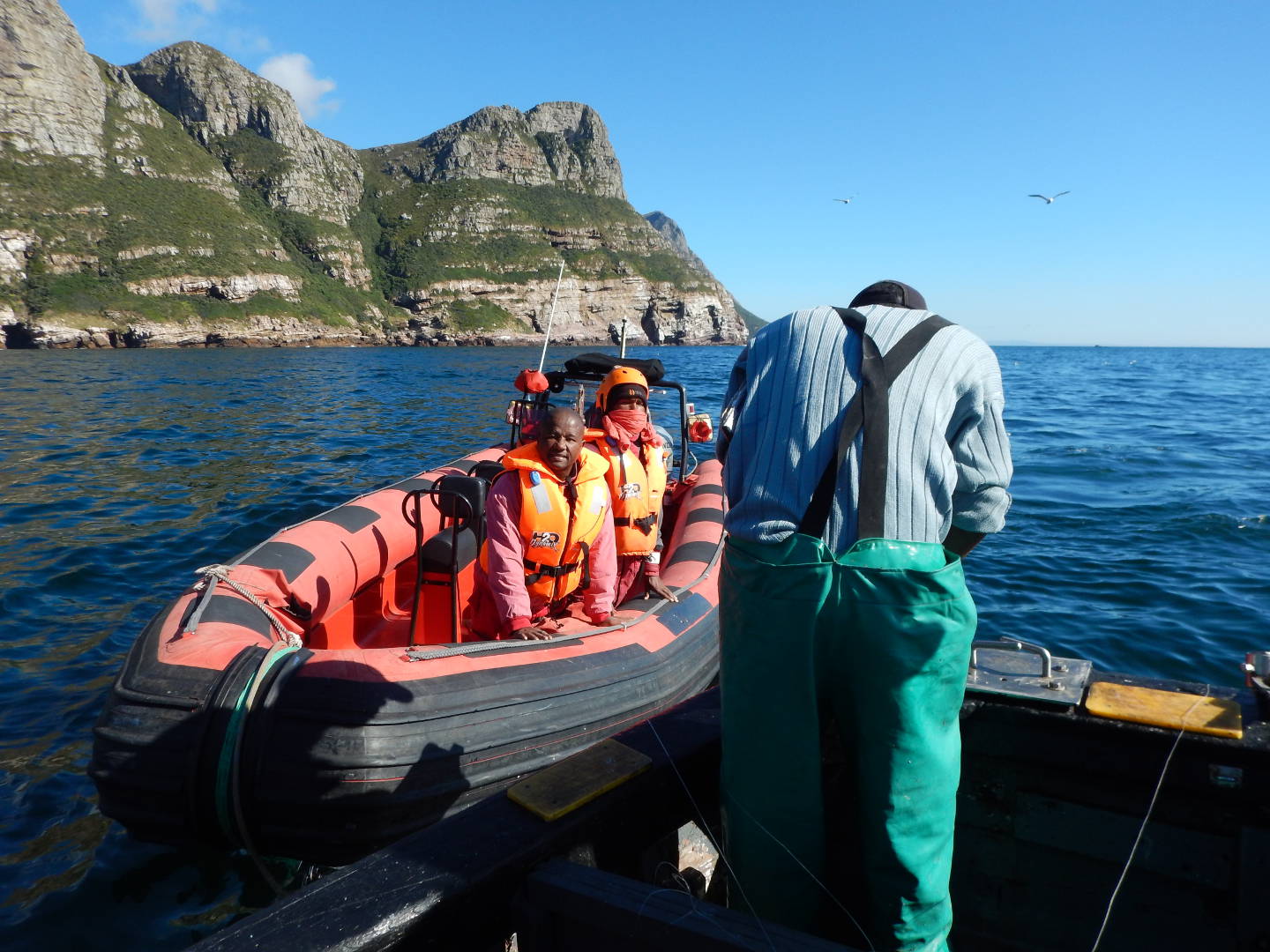
Fighting for reef fishes
Back at our anchoring point, the south-easterly wind has picked up slightly. I cringe at the bone-chilling crack as another snoek loses its neck and look up to see a red rubber duck roaring towards us. Our skipper Jacob Andrews is edgy. The boat approaches and he hands over some papers. Uniformed men read through the document carefully before eventually moving on to question another skipper.

By now, much to the dismay of the crew, the snoek have stopped biting. The anchor is raised and we move closer to the shore, stopping above a rocky reef. Another rubber duck charges up to us. This time we are expecting it. Joris and I are greeted by local dive operator Steven Benjamin, who is looking bewildered. We thank the fishermen and jump into the inflatable boat. Steve waits until we are a few hundred metres away before he explodes. ‘This is mad! There are 16 boats fishing inside the reserve and the patrol boat is watching!’ I am shocked when I realise that we are in a stretch of coast known as Paulsberg, which has been a no-take zone since 2004.
The patrol team demanded to see papers from every vessel in the area, but did not mention that we were in a reserve and everyone was fishing illegally.
We look back towards the Blue Starfish. The lines have gone in and soon a crimson flash breaks the surface and the first red roman of the day is pulled up into the boat. In a place where even the law enforcers seem unaware of the conservation rules, the future for reef fishes looks very bleak.
In 2000, South Africa’s government declared a conservation emergency and reduced commercial line-fishing quotas by approximately 70%. Additional restrictions were introduced in 2005. Sadly for reef fishes, this was not enough. These endemics are long-lived and slow-growing and differ from resilient pelagics in that their complicated life histories make it very difficult for populations to recover.